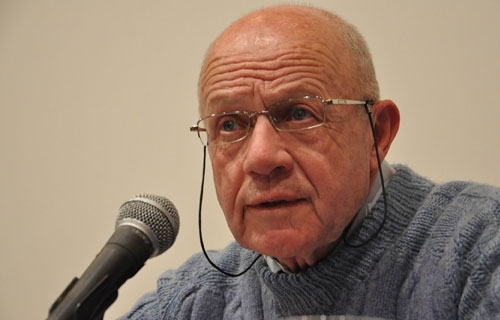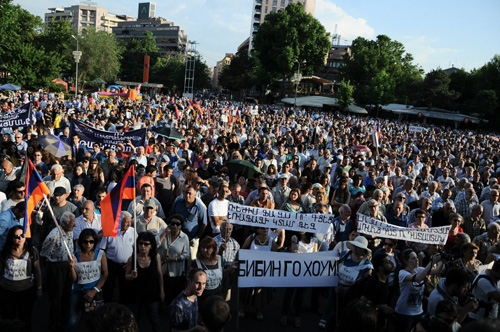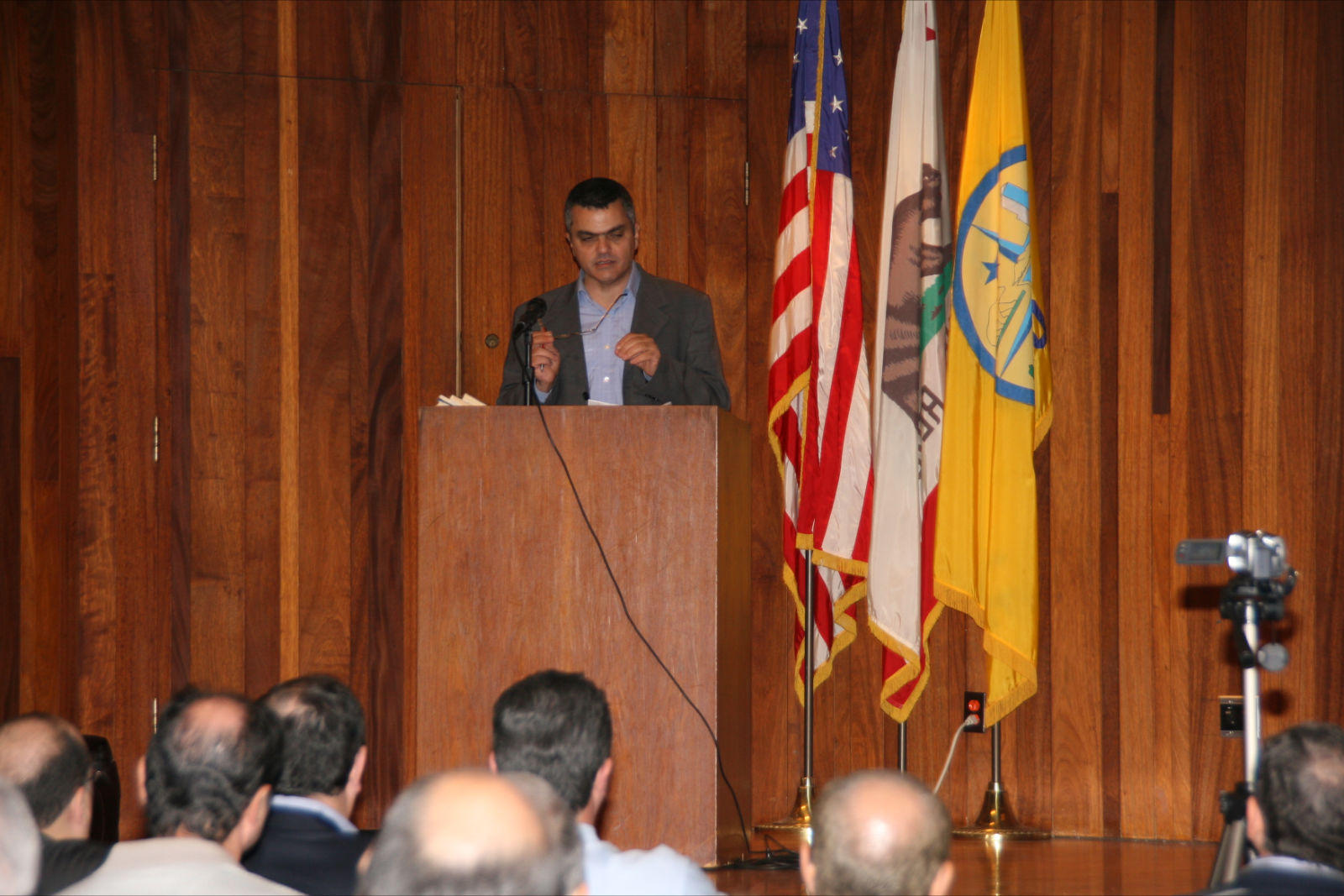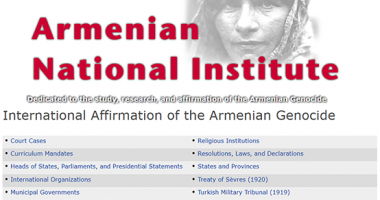By Hambersom Aghbashian
İsmail Beşikçi (born in 1939 in İskilip, district of Çorum Province of Turkey) is a Turkish scholar. He studied at the Faculty of Political Sciences of Ankara University, and graduated in 1962. After his military duty he became an assistant professor at Atatürk University in Erzurum. He prepared his first anthropological study, an investigation of one of the last nomadic Kurdish tribes, the Alikan, which he submitted in 1967 to the Ankara Faculty of Political Sciences. His book “The order of East Anatolia”, first published in 1969, made him a public enemy because of his way of analysis, and it led to a trial after the 1971 coup. He was detained and put on trial and was sentenced to 13 years imprisonment for violating the indivisibility of the Turkish nation. He was then sentenced many times for imprisonment, totally 100 years, and has spent 17 years in and out of jail. After his first imprisonment, he never found academic employment again and was henceforth to do his research as an independent scholar. He has become a powerful and important symbol for the Kurds and for the human rights movement of Turkey. In 1987 he was a candidate for the Nobel Peace Prize. Beşikçi is a PEN* Honorary Member and Turkey’s best-known dissident. He has published 36 books and 32 of them have been banned in Turkey.
According to bianet.org, “A day after journalist Hrant Dink’s murder on 19 January 2007, writer Temel Demirer read a press statement in central Ankara, saying that the journalist had not only been killed for being Armenian, but also because he had spoken of an “Armenian genocide.” He continued saying “There is a genocide in our history, it is called the Armenian genocide……”. The statement was signed by Fikret Başkaya, İsmail Beşikçi, Yüksel Akkaya, Mehmet Özer, Necmettin Salaz, Ahmet Telli and more than forty other Turkish intellectuals.
On April 24, 2010, as genocide commemoration events were being held one after the other in different locations in Istanbul, a groundbreaking two-day conference on the Armenian Genocide began at the Princess Hotel in Ankara. The conference, organized by the Ankara Freedom of Thought Initiative, was held under tight security measures. The conference attracted around 200 attendees, mostly activists and intellectuals who support genocide recognition. Among the prominent names from Turkey were İsmail Beşikçi , Baskin Oran, Ragip Zarakolu, Temel Demirer, and Sait Cetinoglu and many others.
According to “http://www.mirak-weissbach.de”, “The 2012 International Hrant Dink Award was presented to laureates İsmail Beşikçi from Turkey and “Memorial” from Russia, on September 15, 2012. The Chair of the Award Committee Ali Bayramoğlu stated that on his 58th birthday, the name of Hrant Dink, and the awards given in his name were once again to meet with people who work for a world free of discrimination, racism, and violence, and take personal risks for their ideals. And added that the Laureates are determined by an international jury and a two-round system of voting, after an open nomination process.
On November 6, 2012, the temporary exhibition titled “Armenian Genocide and Scandinavian Response” was opened in the Humanitarian Research Library which is a part of the Copenhagen Royal Library. The Turkish government demanded the Royal Library of Denmark to open “an alternative” exhibition about “So-Called Armenian Genocide” and that was agreed by the Library authorities. In response to that a group of Turkish citizens–including academics, writers, former members of parliament, and mayors, have signed an open letter to the Royal Library saying “The support that you are extending to a regime that has made opposition to confronting history and denial of the truth a fundamental principle is equivalent to supporting a regime of apartheid. We want to remind you that your support constitutes an obstacle to democratization efforts in Turkey today.” İsmail Beşikçi was one of the prominent intellectuals who signed it. (1)
On October 29, 2014, armenianow.com wrote “ The Western Armenian National Congress granted prominent Turkish scholar, journalist, sociologist İsmail Beşikçi with a medal of “Gevorg Surenyants Catholicos” for his well-known theory of the Armenian Genocide as a part of the Turkish national project of ethnic cleansing of all Middle Eastern local peoples. Through his studies about the Armenian Genocide Beşikçi fixed two realities, one of them is that from the very beginning Kurd-Turkish political competition was based on the clash of interests for the Armenian property and land. Beşikçi published numerous article in the Turkish media where he emphasized that the base of the wealth of the Turkish bourgeoisie is the Armenian wealth. Beşikçi said, any nation can commit a genocide, in 1915, Ottoman Turkey, in 1945, Germany, these two are big states, but unfortunately nowadays even the small states do it. To prevent this, the young generation must be informed and aware of all this.”(2)
During their visit to Armenia in October 2014, Turkish and Kurdish public and intellectual figures met with students at Yerevan State University. During the meeting, renowned Turkish scholar İsmail Beşikçi spoke on genocides being committed in the world including the Armenian Genocide.(3)
On April 19, 2015, in Bitlis, Turkey’s most prominent human-rights advocate, İsmail Beşikçi, participated in a public commemoration titled, “What Happened to Bitlis Armenians?” Among the 200 or so people present were the co-mayors of Bitlis, Bitlis, Hüseyin Olan and Nevin Daşdemir Dağkıran, who recently renamed one of the city’s streets after William Saroyan; the Fresno-born writer’s parents had been driven from Bitlis.. The event was organized by The Turkish Human Rights Association (Bitlis branch), Bitlis Bar Association and the Gomidas Institute (London). The main speakers were Enis Gül (Head of Bitlis Bar Association), Barzan Serefhanoglu (Journalist), Ara Sarafian (Gomidas Institute) and İsmail Beşikçi (Sociologist and veteran human rights’ activist). This was the first public commemoration of the Armenian Genocide in Bitlis.(4)
————————
* PEN International is a worldwide association of writers, founded in London in 1921 to promote friendship and intellectual co-operation among writers everywhere. The association has autonomous International PEN centers in over 100 countries.
1- http://www.genocide-museum.am/eng/19.12.12.php
2- http://armenianow.com/genocide/58056/armenia_turkey_ismail_besikci_medal
3- https://www.youtube.com/watch?v=je2YWm2aQVs
4- http://www.hyebiz.com/2015/04/29/officials-and-society-in-eastern-turkey-confront-legacy-of-the-armenian-genocide/










